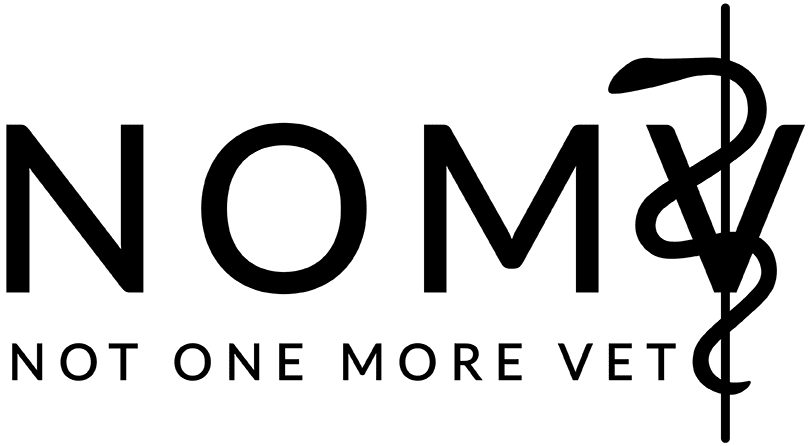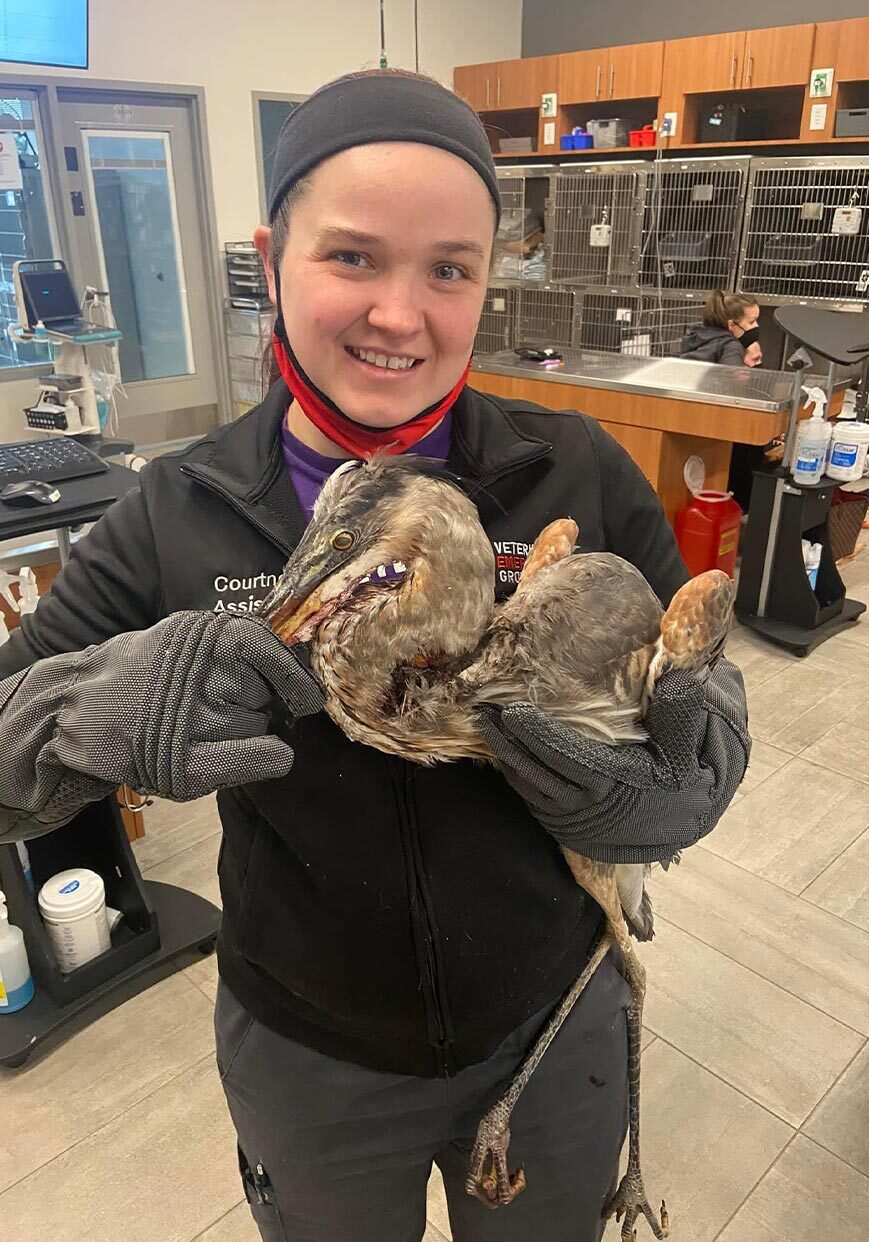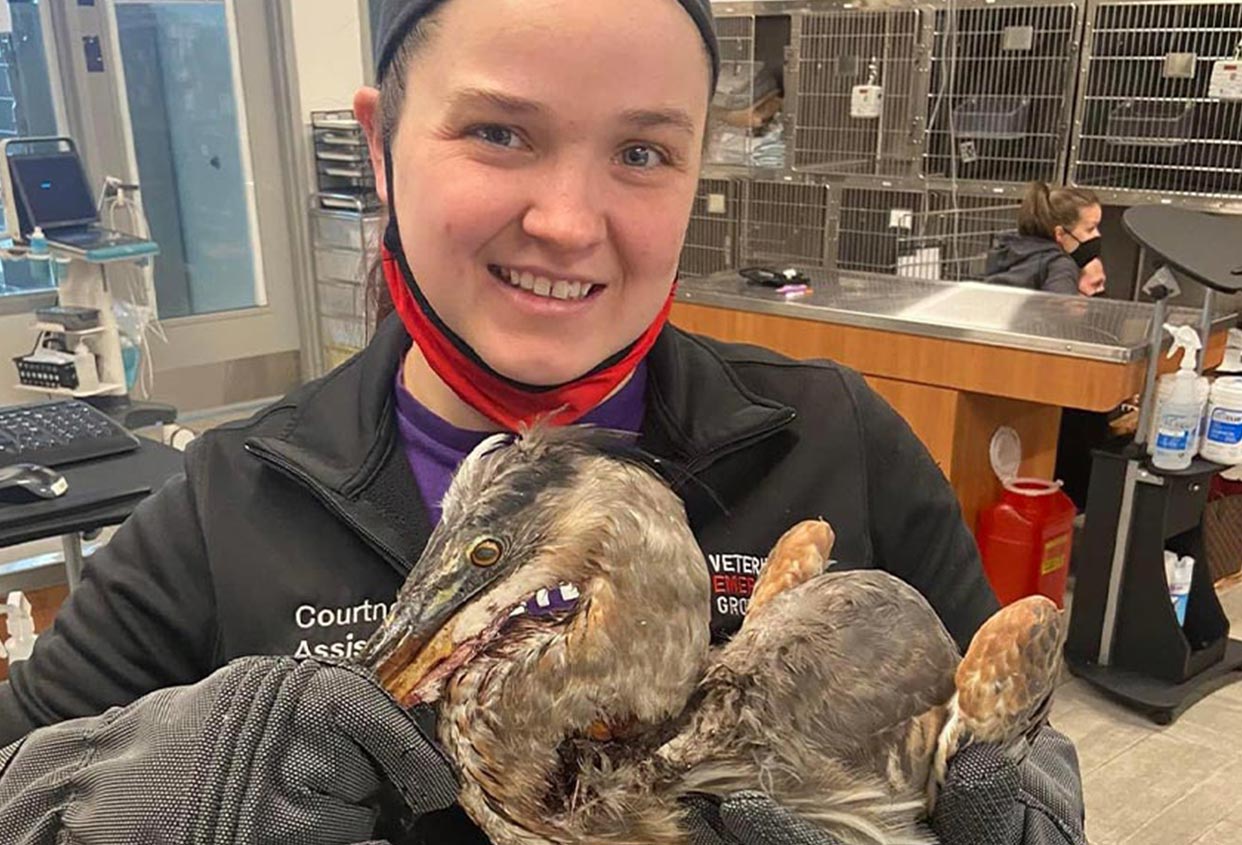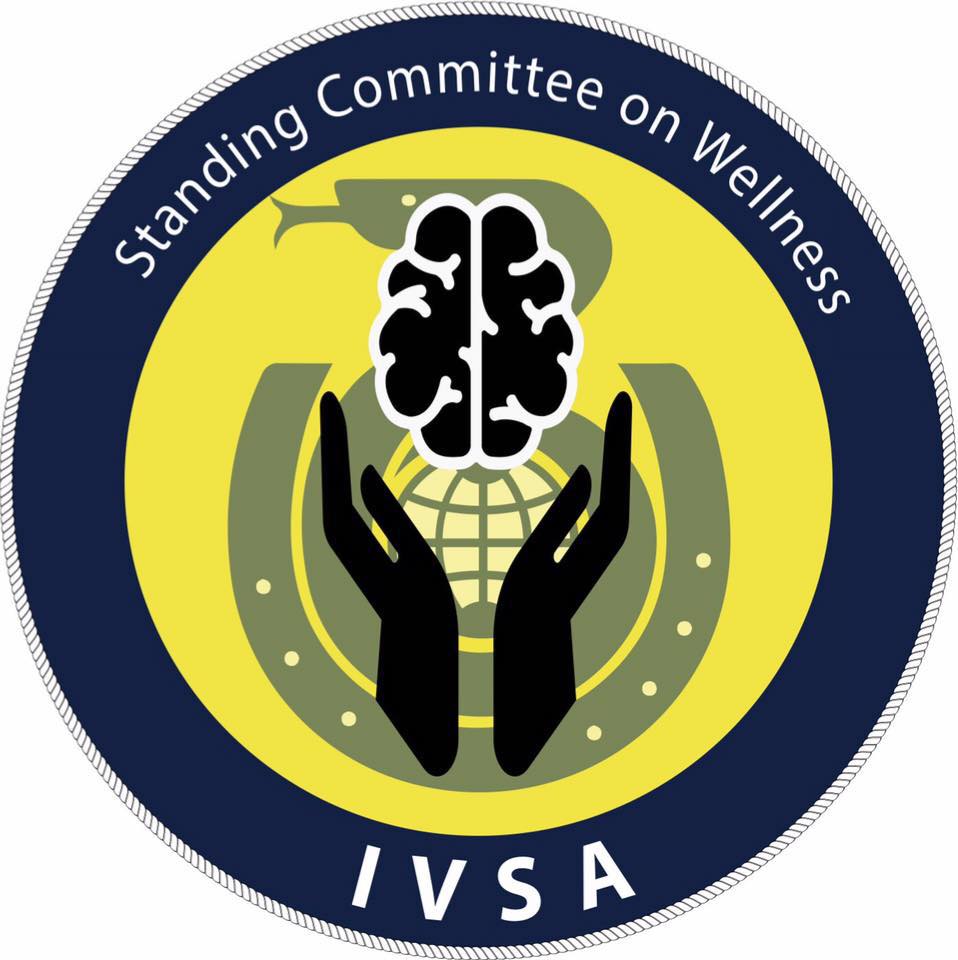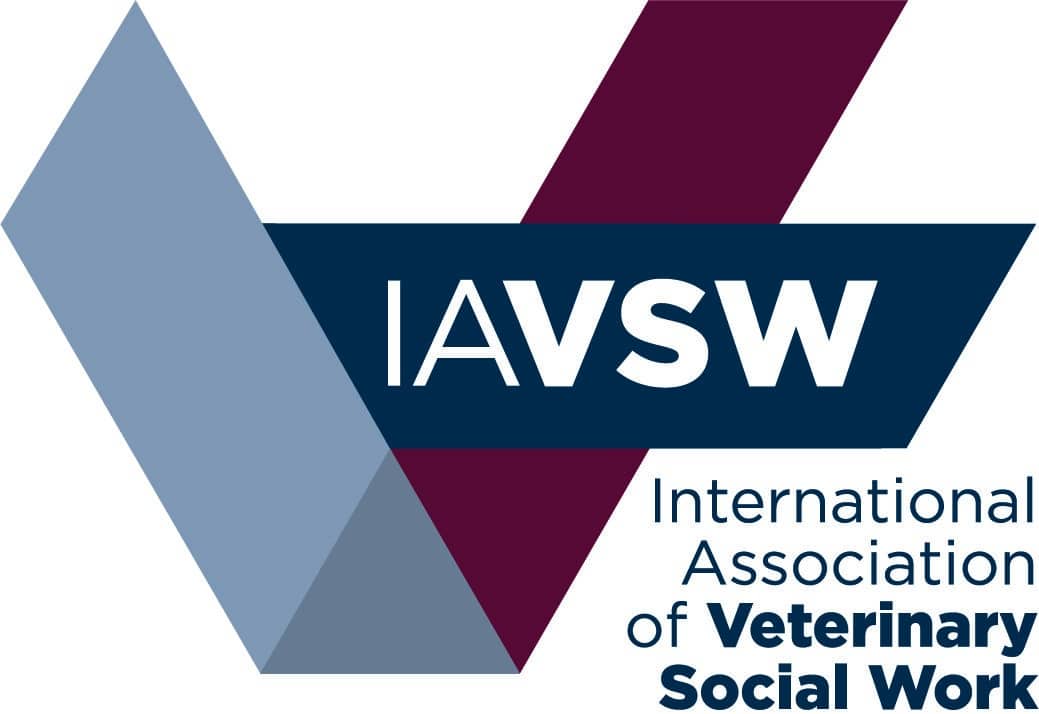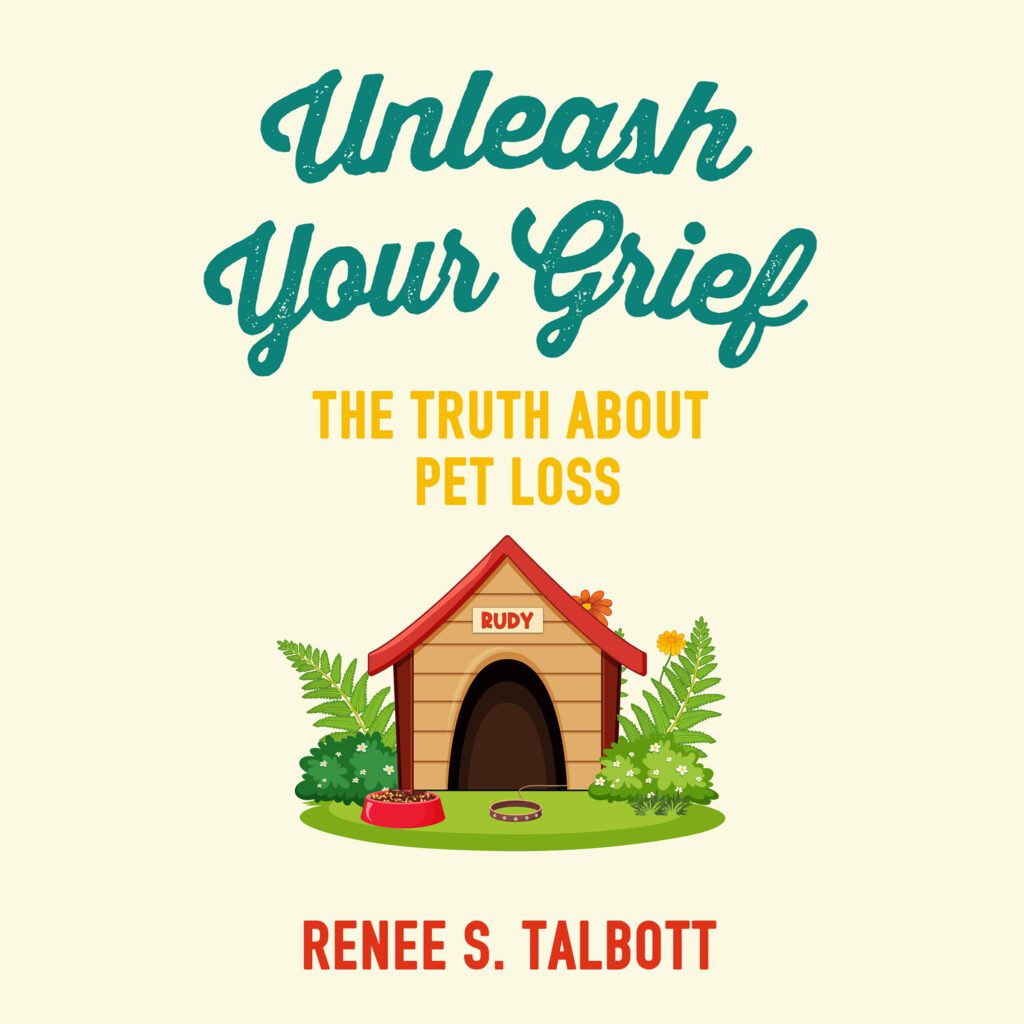Pet Guardians:
How to Support Your Veterinary Team
As a pet guardians, you choose your vet because you trust them to help your pet and support you in their lifelong care. Supporting your veterinary team in turn can strengthen your partnership and lead to a happier future for pet guardians and veterinary professionals alike.
We invite you to join us in our mission to ensure not one more vet has to go without the resources they need to flourish in their profession.
The Problem
According to a 2019, CDC study, 1 in 6 veterinarians consider suicide at some point in their career. Luckily, a 2023 Merck study shows that an increase in your support for your veterinary team matters. Learn more below about how pet parents like you can play a pivotal role in helping veterinary professionals, and the greater veterinary community, become a healthier, happier profession.
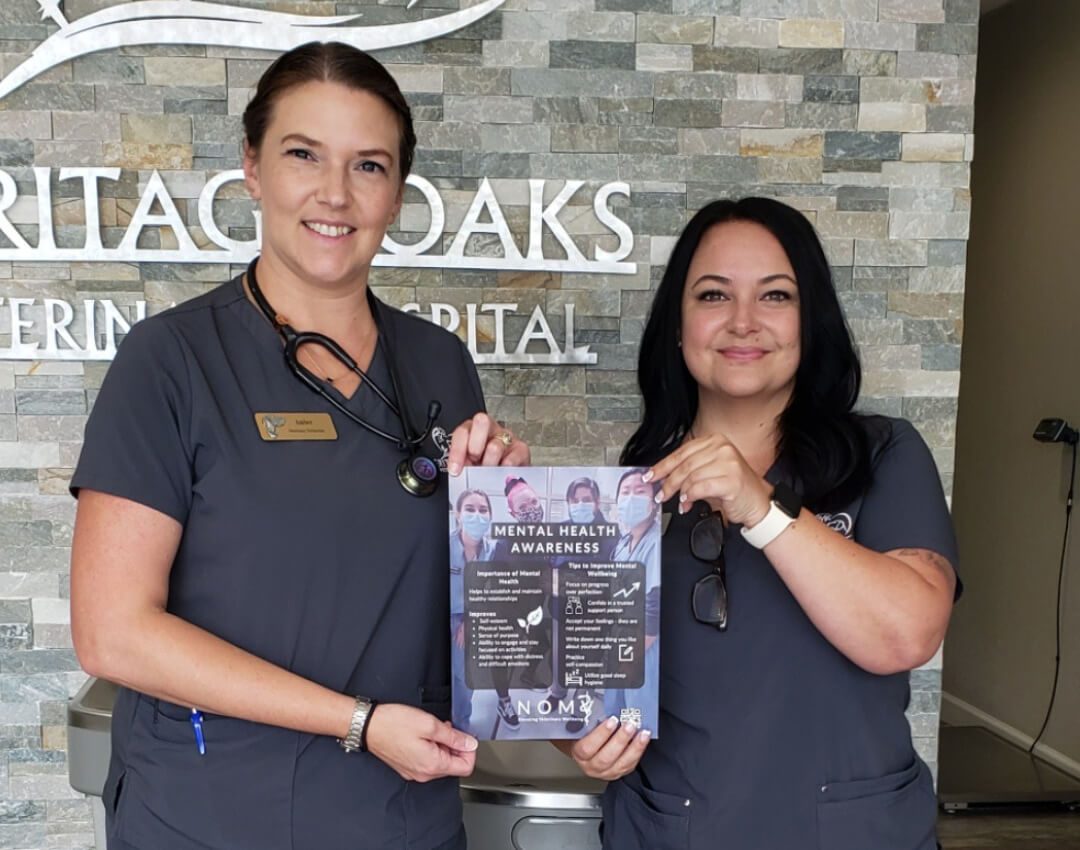
How Does NOMV Help?
NOMV helps veterinary professionals through peer support, resources, and education. When we say veterinary professionals we mean everyone – veterinarians, veterinary technicians, veterinary students, and veterinary support staff.
Daily Challenges Veterinary Professionals Face
Veterinary professionals are giving more than just their time to care for your pets. They dedicate their skills, energy, and compassion, sometimes at the cost of their own well-being. Supporting your veterinary team can reduce the many challenges they face every day, which you can learn more about below.
American Veterinary Medical Association. (n.d.). Student debt advocacy. https://www.avma.org/advocacy/national-advocacy/student-debt
American Veterinary Medical Association. (2015, September 2). Cyberbullying in veterinary medicine. JAVMA News. https://www.avma.org/javma-news/2015-09-15/cyberbullying-veterinary-medicine
Batchelor, C. E. M., & McKeegan, D. E. F. (2012). Survey of the frequency and perceived stressfulness of ethical dilemmas encountered in UK veterinary practice. Veterinary Record 170(1), 19. https://doi.org/10.1136/vr.100262
Bartlett, S. (2021, January 1). Veterinary educational debt continues to rise. Kansas City Veterinary Medical Association. http://www.kcvma.com/2021/01/01/veterinary-educational-debt-continues-to-rise/
Bureau of Labor Statistics. (n.d.). Occupational outlook handbook, veterinarians. U.S. Department of Labor. https://www.bls.gov/ooh/healthcare/veterinarians.htm
Connaster, G. (2021, June 2). Veterinarian grads struggle to pay off student loans in rural areas. Wisconsin State Farmer. https://www.wisfarmer.com/story/news/2021/05/19/veterinarian-grads-struggle-pay-off-student-loans-rural-areas/7053271002/
Dodge, L. E., Koontz, S. R., & Hadrich, J. C. (2019) Factors associated with financial performance of independently owned companion and mixed animal veterinary practices. Journal of American Veterinary Medical Association 255(7), 805-811. https://doi.org/10.2460/javma.255.7.805
dvm360. (2022) Survey finds striking misconceptions surrounding veterinary technicians. https://www.dvm360.com/view/survey-finds-striking-misconceptions-surrounding-veterinary-technicians
Moses, L., Malowney M. J., & Wesley Boyd J. (2018). Ethical conflict and moral distress in veterinary practice: A survey of North American veterinarians. Journal of Veterinary Internal Medicine. 32(6), 2115–2122. https://doi.org/10.1111/jvim.15315
National Association of Veterinary Technicians in America. (2016). National Association of Veterinary Technicians in America Demographic survey results: 2016. https://cdn.ymaws.com/www.navta.net/resource/resmgr/docs/2016_demographic_results.pdf
Nett, R. J., Witte, T. K., Holzbauer, S. M., Elchos, B. L., Campagnolo, E. R., Musgrave, K. J., Carter, K. K., Kurkjian, K. M., Vanicek, C. F. O’Leary, D. R., Pride, K. R., & Funk, R. H. (2015). Risk factors for suicide, attitudes toward mental illness, and practice-related stressors among US veterinarians. Journal of the American Veterinary Medical Association, 247(8), 945-955. https://doi.org/10.2460/javma.247.8.945
O’Hara, K., McConnell, C., Leung, A., & Spadafori, G. (2019). Nationwide-Purdue veterinary price index: 2019 update. NationwideDVM. https://nationwidedvm.com/wp-content/uploads/2019/11/FINAL_Nationwide-Purdue_2019-Veterinary-Price-Index.pdf
Vande Griek, O. H., Clark, M. A., Witte, T. K., Nett, R. J., Moeller, A. N., & Stabler, M. E. (2018). Development of a taxonomy of practice-related stressors experienced by veterinarians in the United States. Journal of the American Veterinary Medical Association, 252(2), 227-233. https://doi.org/10.2460/javma.252.2.227
Witte, T. K., Spitzer, E. G., Edwards, N., Fowler, K. A., & Nett, R. J. (2019). Suicides and deaths of undetermined intent among veterinary professionals from 2003 through 2014. Journal of the American Veterinary Medical Association 255(5) 595-608. https://doi.org/10.2460/javma.255.5.595
